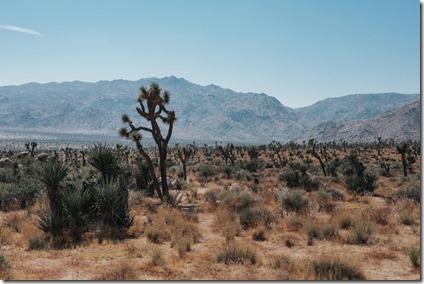I will tell of the decree:The Lord said to me, “You are my Son; today I have begotten you. 8 Ask of me, and I will make the nations your heritage, and the ends of the earth your possession. 9 You shall break them with a rod of iron and dash them in pieces like a potter’s vessel.” –Psalm 2:7-9
At Jesus’ baptism the Spirit descends upon Him and the Father proclaims, “You are my beloved Son, with you I am well pleased.” It’s obvious that in this declaration there is a call back to Psalm 2.
So what happens immediately following this inauguration? Psalm 2 would seem to indicate that the Son of God will take up sword and begin his quest of kicking tail. But it’s not. The shift in Mark is jarring, sadly broken up by our section divisions.
“The Spirit immediately drove him out into the wilderness.” –Mark 1:12
The word for “drove him out” is ekballo. It’s a word that is most typically used by Mark of Jesus driving out a demon. When you’re a bouncer and you need to remove some cat who doesn’t belong, you’d use ekballo to say you bounced him out on his head. Matthew and Luke use a different word (anago). It’s less jarring. It has the Spirit leading—or guiding by the hand—into the wilderness. Mark uses a word that would bring to mind a whip instead of wooing word.
At this point commentaries and sermons tend to get caught up on the dynamic between the Spirit and the Son. Did the Son not want to go and so had to be driven? Of course not, but that’s getting sidetracked from what Mark is actually telling us.
Jesus’ baptism is a moment of glory. Then the Spirit enters in, like a bouncer, and throws Jesus out into the wilderness. It’s almost as if the Spirit is saying, “The Son doesn’t belong in this locale (pointing to glorious things) but in that (pointing to the place of the jackals and all things barren).
That is what Mark is doing here. But why? Why is he doing something a little different than both Matthew and Luke. I would propose that part of the reason is because Mark’s audience is largely Roman and they have a certain glory-bent that would grab ahold of this beloved Son and make him a warrior king instead of a Suffering Servant.
Mark’s whole gospel is driving to one beautiful declaration, “truly this man was the Son of God!” But what kind of Son of God is he? Mark labors for sixteen chapters to show us that he is the kind of Son of God who will choose a cross over a crown, spittle over splendor, pain over pomp.
Don’t mistake Mark’s message, though. Jesus does belong in glory. But the Spirit drives him out into the wilderness (fully in accordance with His own pleasure) because this is where humanity has placed themselves. We are “where the wild things are”. Therefore he must conquer our enemy in the wilderness.
I remember being taught that the safest place to be was smack dab in the center of God’s will. I understand the sentiment, but I don’t think the wilderness is every the safest place. But it’s a necessary place. Just as Mrs. Beaver said of Aslan, “he isn’t safe but he is good.” Yeah, obedience to the Spirit probably isn’t the safest but it’s the goodest (sic).
It’s also worth noting that the Spirit never abandoned Jesus while in the desert. “Angles were ministering to him” is what Mark says. He wants us to know that Jesus—though thrust into the darkness by the Spirit—was not abandoned by the Spirit. In the same way the Spirit will always go with us into these darkest places where we are following the footsteps of Jesus.
The Spirit drove Jesus into the wilderness so that Christ could drive the wild out of the wilderness. He is redeeming all the broken things. That means us. He makes all things new—not by coercion but through suffering. He crushes the head of the serpent (dashes him to pieces) through a bloody cross and not a bloody sword. It is the Suffering Servant who rules the nations.
—
Photo source: here
